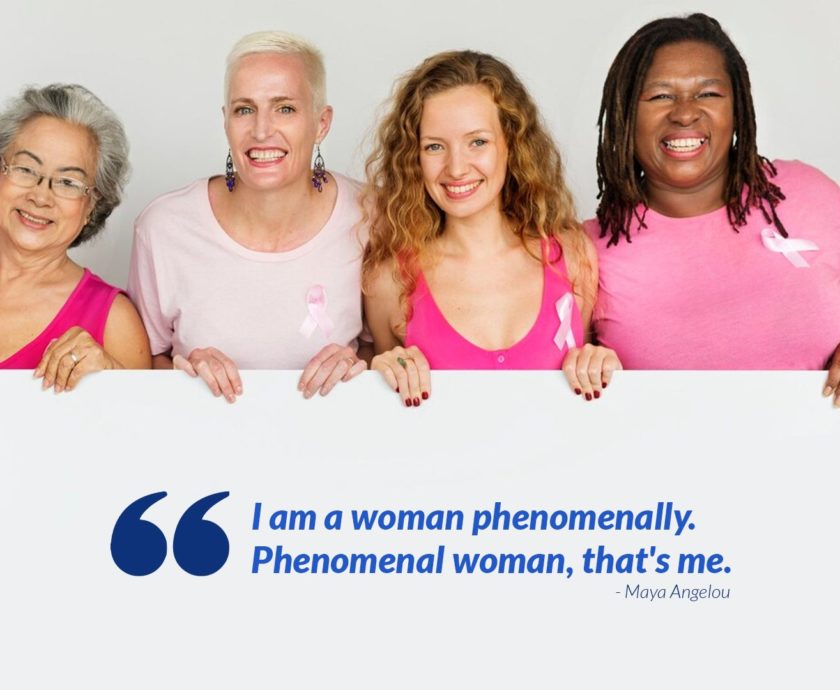April has been declared National Minority Cancer Awareness Month with the aim of encouraging educational initiatives on the current health issues confronting minorities and other communities with health disparities. While the statement “Cancer is not equal” is a powerful one, we should all be aware that cancer does not impact us all in the same way. When a person is diagnosed with cancer, each community, ethnic group, and country is affected differently. There are undeniably certain health disparities encountered by racial, ethnic, and geographic groupings, as well as underprivileged populations, among cancer patients. It is evident that various advancements in cancer diagnosis and treatment have taken place. Modern technologies and facilities for cancer research have evolved. However, there is still a large disparity in the availability of quality cancer care among various minorities. In order to lessen the burden of cancer disparity and address these health disparities, action is urgently required.
The truth is, health disparities can’t wait.”
What is cancer minority?
Contrary to popular belief, cancer in the minority is more common. Minority health and welfare are ongoing issues, not simply of today. Its origins date back a long time. Although many people might not be aware of it, it is a major issue that calls for reform at all levels, from individuals to the government. But what exactly is the cancer minority? Cancer inequalities emerge when there are differences in cancer occurrence, frequency, death, and burden among distinct population groups, especially racial and ethnic minority groups. Access to quality treatment can be hampered by a lack of accessible health care, trustworthy transport, or permission needed for treatment from work, among other things. In addition, a cancer diagnosis may be delayed as a result of skipping regular doctor visits and cancer screenings. Additionally, cancer is tougher to adequately cure when it isn’t discovered early.
Make an impact by donating today: Donate here!
Cancer Minority Causes
Cancer health disparities have a variety of causes:
- Financial burden;
- Other health issues;
- Access to quality treatment; Lack of finance to access effective care and treatment;
- Socioeconomic status: Person’s income, education level, occupation etc.
- Social and built environment: Transportation; public services; and policies and regulations, all of which influence the availability of and access to food, medical facilities, and green spaces, among other attributes of a neighborhood;
- Mental Health: Emotional, psychological, and social well-being of a person and affects how one thinks, feels and acts;
- Modifiable Risk Factors: Health behaviors include smoking, malnutrition, alcohol consumption, exposure to carcinogenic pathogens, and limited physical activity.
Advancements have been made in cancer treatment, early detection, and prevention over the past few decades. And as a result, the total rate of cancer deaths has decreased. Nevertheless, people living in rural regions, people of color, and those with lower socioeconomic status have not equally profited from these advancements. Diverse factors such as discrimination, racism, and other social factors that affect health and are linked to social injustices are some causes of health disparity when combined. If the health authorities and healthcare professionals do not address this, these differences in cancer outcomes depending on race, income, and location are likely to get worse.
It has been observed that people who are less likely to receive preventive cancer screening tests and be treated accordingly include those with low incomes, poor health literacy, long travel distances to locations for screening, or people who lack health insurance, medical transportation facilities, or the fact that they need to take unpaid leave. The reality is that people who lack consistent access to health care are also more likely to be diagnosed with late-stage cancer, which may have been treated more successfully if detected earlier, causing a gap in cancer care amongst the different ethnic minorities.
Environmental factors have a significant role to play in the cancer disparity. For instance, people who reside in areas with polluted water or air may be exposed to cancer-causing chemicals, thereby augmenting their risk of developing cancer. It has been demonstrated that even those with higher socioeconomic status and health insurance may face cancer inequities. These differences may reflect the health impact of institutional racism and the chronic stress it produces, poor care from medical personnel, skepticism of the health care system, and their resigned attitudes toward cancer.
As highlighted by the American Association for Cancer Research (AACR) cancer disparities progress report:
- African Americans have double the risk of dying from prostate cancer, stomach cancer and multiple myeloma compared with whites.
- Hispanic children are 38 percent more likely to develop leukemia than non-Hispanic white children
- Asian/Pacific Islanders and Hispanics have double the risk of dying from stomach cancer compared with white adults.
- American Indians are twice as likely to develop liver and bile duct cancer as white adults.
How To Reduce Cancer Disparity
It is not always easy or clear-cut to address cancer inequities because of the wide range of factors that can have an impact. In order to achieve health equity, policy changes in the medical system are required. The truth is, access to cancer care should be equal across nations. A person with a low income should be given the same treatment as a person with a higher income. It is equally necessary to address systemic social and racial inequities. How can you lend a helping hand in this battle against cancer? A lot of it comes with education—encourage your friends, family, and neighbors to practice prevention and early detection. In this battle against cancer, every bit of help is needed to make a big difference and improve the situation of the cancer community. Researchers supported by the NCI are looking for additional strategies to enhance outcomes for populations that are disproportionately afflicted by cancer. Their research projects cover a wide range of topics, such as developing and implementing culturally competent health treatments, enhancing access to care and clinical trials, and looking into genetic variables that could account for variations in the prevalence of aggressive tumors.
The Falcon Memorial Cancer Institute (FMCI) is dedicated to lending a helping hand in this battle against cancer. The FMCI seeks to support and assist anyone who has been affected by cancer. FMCI aims to provide financial support to cancer patients in Mauritius and abroad, as well as funding cancer research, purchasing medical equipment to treat cancer in hospitals, and maintaining a strong effort to massively raise cancer awareness.





